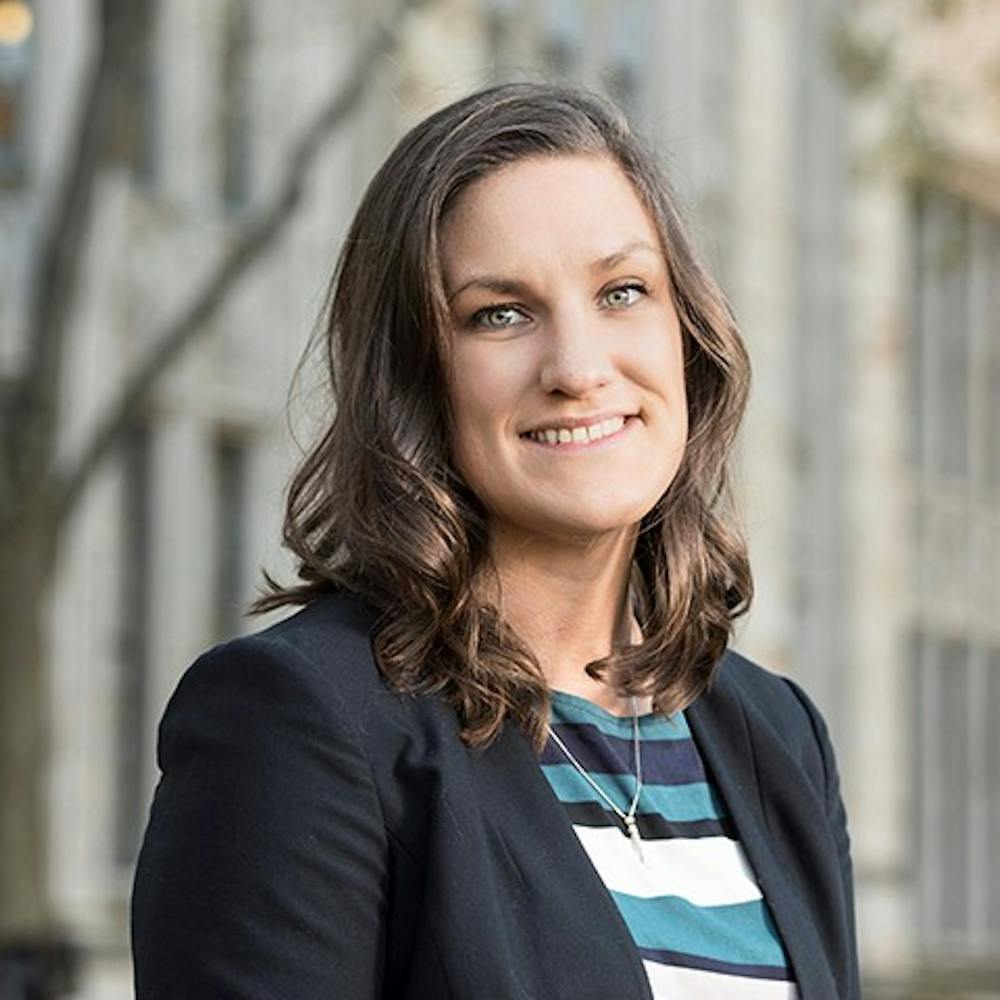Misti McKeehen joined the University as the new Executive Director of the Center for Social Concern (CSC) in May 2018. As the Executive Director of the CSC, McKeehen will work with all CSC programs, including campaigns such as the President’s Day of Service and HopServe 50. She will also help oversee the student-run community service groups on campus.
Prior to stepping into her role at Hopkins, McKeehen worked at the University of Pittsburgh as the Director of the Office of PittServes, an organization which provides community service opportunities to students. She is currently pursuing her doctorate in Social and Comparative Analysis of Education.
McKeehen has over 15 years of experience in activism and community involvement. In 2017, Pittsburg, Pa. media outlet The Incline named her one of “20 People Building a Better Pittsburg.” Additionally, she has served as the Director of Operations & Outreach at the Coro Center, an organization which trains civic leaders, and the Site Director of Public Allies Pittsburgh, a community service organization.
In an interview with The News-Letter, McKeehen emphasized the resources that the CSC offers to student community service groups.
“We want to support students in however they want to be engaged,” she said. “We really want students to understand that you can have a community as part of your community service.”
Last year, the CSC placed a ban on new student community service organizations allowed to operate on campus. According to McKeehen, this ban will not continue into the 2018-2019 academic year.
The CSC implemented the ban on new community service groups in response to concerns that too many student groups cover very similar issues. McKeehen stated that the Center will focus on encouraging such groups to collaborate on service projects.
“I’m very, very big on collaboration,” McKeehen said. “[Duplication] can reduce resources that are available, and it doesn’t make the full movement as strong.”
The CSC also noted that last year, some student groups failed to build strong relationships with Baltimore service organizations, thereby potentially harming the relationship between Hopkins and these organizations in the future.
McKeehen believes that collaboration with community organizations should be a priority for Hopkins service groups.
“We all live in Baltimore. We’re all part of Baltimore. It’s not Hopkins and then the rest of the community,” she said. “I really want to make sure we’re opening conversations and hearing from the community what they’re most interested in being engaged with us on.”
McKeehen emphasized the importance of ethical community service practices, especially from an influential institution like Hopkins.
“For all the work I’ve done in my career, it has always been incredibly important to listen to communities first, and to never assume we know what’s best for them,” McKeehen said. “As with any large-scale institution, there have to be conversations with the community, and those pieces of ethics and serving responsibly always have to be at the forefront.”
She also explained that her new role allows her to personally engage with community organizers in Baltimore.
“The work we do out of the CSC allows me the chance to get to know community agencies in a different way,” she said. “I’ve gone out and volunteered with a few organizations already. I’ve had one-on-one meetings with organizations so I can hear, not just about their work as it relates to Hopkins, but their work in the entire community.”
McKeehen cited the Community Impact Internship Program (CIIP) as an example of a community service program that seeks to ethically engage with the Baltimore community. Participants in CIIP learn about the history of the city and engage with local community activists.
One of the CSC’s new initiatives is a student-led project called Baltimore First, which aims to connect students with community service opportunities in fields about which they are particularly passionate.
“Baltimore First is a way that you can sign up and essentially be matched into a project that you care about and that fits your schedule, and that gives you that reliable opportunity to serve,” McKeehen said.
Dozens of student organizations now operate within this initiative, which asks students to make a regular commitment to service at a particular organization. McKeehen added that this regularity will improve relationships between student organizations and the community.
She also addressed other potential changes to the CSC. McKeehen explained that the University of Pittsburgh uses online software to allow students to track their community service hours and find service opportunities. She is considering implementing similar software at Hopkins.
“We’d love to be able to show students, over the course of their time at Hopkins, the impact that they’ve made,” she said.
McKeehen also said that she would like to work more closely with the Career Center, noting that some students may be interested in pursuing careers in community service-related fields.
Another area which she plans to address is voter turnout.
“We’re doing a lot of work around voter engagement. And that is where you have to be mindful — everything we do is nonpartisan,” she said.
McKeehen explained that activism and service can be similar, but they are ultimately separate activities.
“Activism is very different from direct community service because you’re doing a different activity. You have a different end goal. Now you can do both, aligned with one topic or one area, but it is important to understand that activism and protesting is different than direct community service,” she said.
McKeehen hopes Hopkins students will continue to utilize the CSC as a resource for service opportunities and to find a sense of community on campus.
“What I’d love for students to know is that our actual building exists to support and welcome people in,” she said. “Let’s figure out how to get you connected to what you want to do.”





